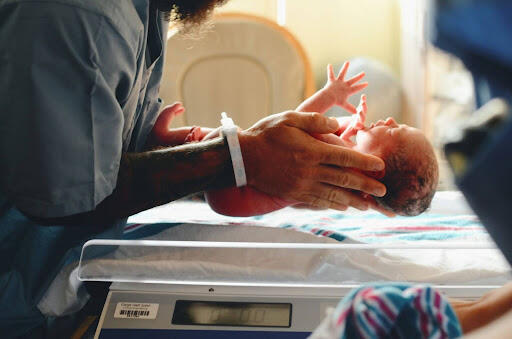
How Hospital Budget Cuts in Baltimore Are Impacting Birth Injury Risks
In Baltimore, hospital budget cuts aren’t just numbers on paper, they have life-altering consequences. With reduced funding to work with, many hospitals are struggling to keep all their departments fully staffed and running smoothly.
For families getting ready to have a baby, this can mean a higher risk of birth injuries. If you’re expecting a child, it’s important to know how these budget cuts might affect your care. In this article, we’ll look at how lower hospital funding may lead to more birth injuries, what’s happening in Baltimore hospitals, and what you can do to protect yourself and your baby.
Budget Cuts and Financial Pressures in Baltimore Hospitals
In early 2025, Maryland lost a large amount of federal health funding that helped pay for local programs, including care for mothers and babies. At the same time, many hospitals have been dealing with staff shortages and financial losses. Even though hospital staff are doing their best, tight budgets often mean tough choices.
How Budget Cuts Increase the Risk of Birth Injuries
When hospitals don’t have enough funding, it can affect the care patients receive. Budget cuts can create problems behind the scenes that end up putting mothers and babies at risk. Here are some of the main ways this can happen:
Staff Shortages and Overwork
When funding is tight, hospitals often cut back on staff. That means fewer nurses, doctors, and specialists like OB-GYNs or anesthesiologists are available during labor and delivery.
With fewer hands on deck, things can move slower, and serious problems like fetal distress might not be caught in time. Staff who are overworked are also more likely to make mistakes simply because they’re exhausted.
Outdated or Inadequate Equipment
Caring for newborns, especially during complicated births, requires modern equipment. But when hospitals can’t afford to replace or upgrade tools, it creates risk. For example, faulty fetal monitors or a lack of neonatal incubators can delay interventions, putting babies at risk during critical moments.
Reduced Prenatal and Postpartum Services
Budget cuts don’t just affect the delivery room, they can also mean fewer services before and after the baby is born. Prenatal testing, mental health care, and lab work might be cut back.
That makes it harder to catch potential problems early. And after birth, some families may not get the follow-up care they need to recover or spot any signs of injury in time.
Increased Risk of Medical Errors
When hospitals are short-staffed, overworked, and underfunded, mistakes are mre likely to happen. These can include delayed C-sections, using the wrong tools, or giving incorrect medications.
Sadly, some of these errors lead to serious birth injuries like brain damage from lack of oxygen, cerebral palsy, or nerve damage. Many of these conditions can have lifelong effects.
What Expecting Parents Can Do
If you’re getting ready to have a baby in Baltimore, it;s normal to feel a little nervous, especially with all the talk about hospital budget cuts. The good news is, there are things you can do to stay informed and protect yourself and your baby as much as possible.
Do Your Research
Take some time to look into the hospital where you plan to give birth. Check out their reputation and see if they’ve had any past issues with birth injuries. Don’t be afraid to ask questions like:
- How many nurses and doctors are on the staff in the maternity unit?
- Do they have the equipment needed for emergencies?
- What happens if something goes wrong during labor?
Speak Up During Appointments
Your prenatal visits are the best time to get answers. If something doesn’t feel right or you don’t fully understand what’s happening, ask. There’s no such thing as a silly question when it comes to your health and your baby’s. Make sure you’re getting regular tests, that your concerns are heard, and that you’re being treated with care and respect.
Keep Records
If you notice something that worries you, like missed appointments, confusing advice, or long wait times, write it down. Keep a notebook or a digital file with dates, names, and what was said or done. If something goes wrong later, these notes could help explain what happened and support your case if you need to take further action.
Know Your Rights
If you or your baby are harmed because of poor care, you don’t have to deal with it alone. Speak with a Baltimore injury lawyer to learn about your options. They can help you understand whether you might be able to get compensation for what happened. Even just a conversation can give you peace of mind and help you feel more in control.
Final thoughts
Bringing a child into the world should feel safe, not uncertain. While hospitals face real financial challenges, parents deserve reliable care and clear answers. Staying informed, speaking up, and knowing where to turn for help can make a real difference. Every family should be able to focus on the joy of a new baby–not the fear of what might go wrong.